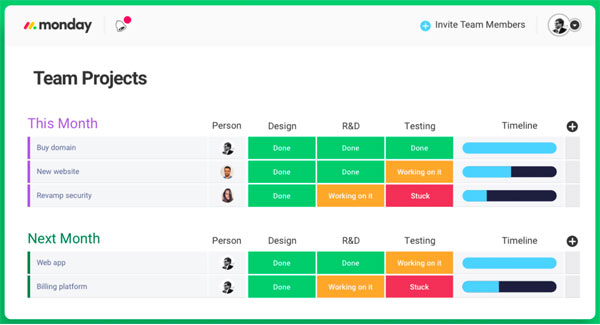
There are many waste management technologies that can help improve the way waste is managed in the oil fields. Sensors that attach to trash cans are one example of such technologies. These sensors help front-loaders and roll off haulers manage their container inventory, routes, and routes. They can also use these sensors to schedule their routes, and more evenly distribute their jobs to their drivers. Compology developed this technology. Its sensors are able to detect the tilt of a container and allow companies to better manage their inventory.
Smart waste management
Intelligent waste management technologies are revolutionizing the way we manage waste. Sensors placed on trash cans and recycle bins monitor the waste level and alert authorities when a container gets full. Advanced optical sorters, as well as disk screens, make it easy to sort. Natural gas is the preferred fuel for garbage trucks. This is because it is more economical and quieter. The waste management process can be simplified with mobile apps.

Sensors in dumpsters
Sensors in dumpsters can help waste management companies monitor the state of their containers. Waste management companies can adjust pickup and delivery times for each dumpster by using data from sensors. Furthermore, machine learning can help them sort waste according to its type.
Recycling apps
Recycling apps make recycling simple and easy for everyone. These apps make it easy to find local recycling centres and group recyclable materials by category. This makes it easy for you to keep track of when and how much to recycle. They offer the latest information and insights on the waste and recycle sector.
Oil field waste management
The various technologies used in oil field waste management are designed to reduce pollution levels and minimize the amount generated. These technologies are available for all types of oil and gas wastes. Superfund liability laws, which were developed in response to the need for oil and gas wastewater recycling, have also increased their importance. Some technologies are more successful than others. However, they depend on top management support, a thorough inventory of waste streams and characterisation of chemical additives. They also need flexibility to accommodate local variations.
Sterilization technology using an autoclave
An autoclave sterilization system can be an effective tool in waste management. This sterilization process involves removing air from the waste and using high-pressure steam for pathogen destruction. This process can kill many pathogens such as prions and is not dependent on hazardous chemicals. There are many sizes available and can be used to sterilize a wide range of medical waste. Temperatures used range from 250 to 300 degrees Fahrenheit.

Bin-E
Bin-E's waste management technology combines AI object recognition with automatic waste detection to maximize waste management at any facility. It has high accuracy and saves time and money. It eliminates the need to manually sort and collect waste by using its automated recognition and segregation process.
FAQ
What are management principles?
Management concepts are the principles and practices used by managers to manage people, resources. They cover topics like job descriptions (job descriptions), performance evaluations, training programmes, employee motivation and compensation systems.
What role should a manager play within a company
The role of a manager varies from one industry to another.
A manager generally manages the day to-day operations in a company.
He/she ensures that the company meets its financial obligations and produces goods or services that customers want.
He/she ensures that employees follow the rules and regulations and adhere to quality standards.
He/she is responsible for the development of new products and services, as well as overseeing marketing campaigns.
What are the top management skills?
Managerial skills are crucial for every business owner, regardless of whether they run a small store in their locality or a large corporation. These skills include the ability of managing people, finances, time, space, and other factors.
Management Skills are also needed when you're setting goals and objectives, planning strategies, leading teams, motivating employees, resolving problems, creating policies and procedures, and managing change.
As you can see, there are many managerial responsibilities!
Statistics
- UpCounsel accepts only the top 5 percent of lawyers on its site. (upcounsel.com)
- 100% of the courses are offered online, and no campus visits are required — a big time-saver for you. (online.uc.edu)
- Hire the top business lawyers and save up to 60% on legal fees (upcounsel.com)
- The BLS says that financial services jobs like banking are expected to grow 4% by 2030, about as fast as the national average. (wgu.edu)
- The profession is expected to grow 7% by 2028, a bit faster than the national average. (wgu.edu)
External Links
How To
How can you implement the Kaizen technique?
Kaizen means continuous improvement. Kaizen is a Japanese concept that encourages constant improvement by small incremental changes. It is a process where people come together to improve their processes.
Kaizen, a Lean Manufacturing method, is one of its most powerful. In this concept, employees who are responsible for the production line must identify problems that exist during the manufacturing process and try to solve them before they become big issues. This improves the quality of products, while reducing the cost.
Kaizen is a way to raise awareness about what's happening around you. Correct any errors immediately to avoid future problems. If someone spots a problem while at work, they should immediately report it to their manager.
There are some basic principles that we follow when doing kaizen. Always start with the end product in mind and work our way back to the beginning. For example, if we want to improve our factory, we first fix the machines that produce the final product. Then, we fix the machines that produce components and then the ones that produce raw materials. And finally, we fix the workers who work directly with those machines.
This is known as "kaizen", because it emphasizes improving each step. When we are done fixing the whole factory, we go back to the beginning and continue until we reach perfection.
You need to know how to measure the effectiveness of kaizen within your business. There are several ways to determine whether kaizen is working well. One of these ways is to check the number of defects found on the finished products. Another way is to see how much productivity has increased since implementing kaizen.
A good way to determine whether kaizen has been implemented is to ask why. You were trying to save money or obey the law? Did you really believe that it would be a success factor?
If you answered yes to any one of these questions, congratulations! Now you're ready for kaizen.